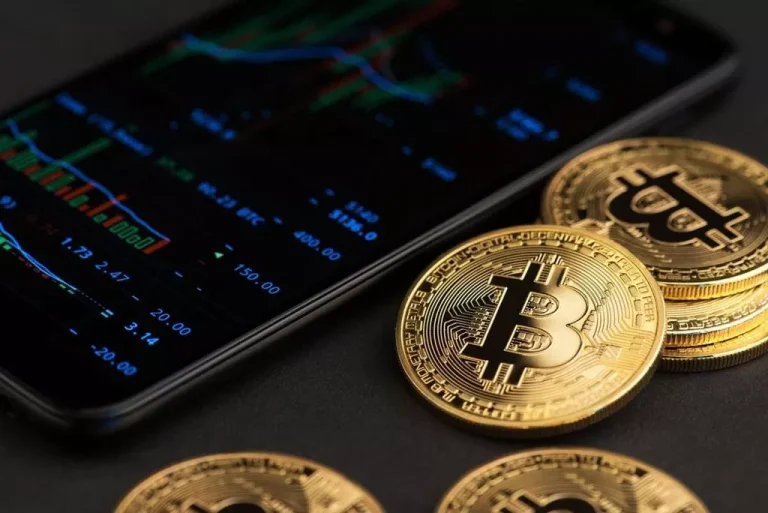It empowers you with complete control over your personal keys and, by extension, your crypto property. The offline storage of private keys that hardware wallets provide is usually called custodial vs non custodial wallet cold storage. Some crypto customers say this means custodial pockets customers don’t truly “own” their crypto, since they don’t management the personal key.
The Best Non-custodial Pockets For Getting, Storing, Swapping And Spending Crypto
Trezor shops private keys offline and includes safety features corresponding to PIN protection and two-factor authentication. With non-custodial wallets, a crypto consumer has complete management over their personal key, together with their funds. Non-custodial wallets tend to be a bit extra technically complex than custodial wallets, so they’re usually more favored by experienced crypto customers. If you favor to keep issues simple and don’t mind a third party between you and your crypto, custodial wallet provider options are plentiful. In truth, most corporations providing custodial wallet companies are well-known and established crypto exchanges like Coinbase, Kraken and Crypto.com.
Some Arguments Summarizing On Custodial Vs Non-custodial Pockets
The Trezor Model T additionally helps Taproot — an improve to the privateness of the Bitcoin community. It also reduces transaction fees and allows users to engage with BTC smart contracts. It’s like being your own bank, supplying you with peace of mind knowing that only you’ll find a way to manage and transact together with your crypto holdings. This creates an extremely simple solution for the user but also creates a further layer of danger. There have been many exchanges which have been hacked, together with Mt. Gox, QuadrigaCX, BTC-e and Bitstamp.

Which Pockets Type Should I Use With My Crypto?
Your Binance account should be “loaded” with crypto as the net site is not going to instantly interact with exterior wallets. If you choose to store your crypto on an trade, put effort and time into deciding on your trade. Ideally, choose an enormous, established firm that’s main by means of transparency and compliance.
- Sharing is not caring on this case; by no means share your personal keys with anybody.
- Paper wallets are an additional level of security to maintain your keys protected.
- Now, let’s discuss the issues you may face when choosing crypto funding.
- Blockchain expertise, which underlies most crypto assets, already has the potential to endlessly change many features of business and finance.
- In order to send cash via the blockchain network, a consumer should first enter the public key after which verify the transaction by entering the personal key.
Interlock Threatslayer Proclaims Early User Rewards: Chapter 2
In the traditional finance world, a financial institution holds nearly all of your cash. This means platforms like CashApp, Robinhood, Coinbase, Venmo, PayPal, and Binance maintain your personal keys for you. If you want to use a public network, a VPN can supply an additional layer of safety.

Don’t forget to keep a quantity of copies of your private key or seed phrase in secure areas to keep away from loss or harm. Also, bear in mind never to share your personal key or seed phrase with anyone, as doing so may result in unauthorized access to your funds. Ensure that your chosen pockets helps the cryptocurrencies you personal or plan to amass.

Accessibility is something we can not miss, with crypto funding opening its doorways for all entrepreneurs who would possibly battle with other routes. If you don’t have a perfect credit rating, it’s no problem as all you want is a solid concept and you could market it nicely. And ultimately, your addresses will be identified and your crypto transactions can be tracked and taxed.
Ultimately, the choice comes right down to your personal preferences and the way a lot management you want over your digital belongings. When you employ a custodial wallet, you rely on the supplier to handle your private keys. This setup presents ease of use, as you don’t want to fret about shedding your keys. Custodial wallets can be protected if managed by reputable and reliable custodians. However, risks embody insider theft, hacking, and modifications in the custodian’s insurance policies or terms of service.
This makes non-custodial hardware wallets virtually impervious to hackers. Non-custodial wallets provide users with the final control and security over their crypto holdings. By managing their own non-public keys and handling transactions themselves, users may be their own bank and have unique entry to their funds. Custodial wallets typically have a user-friendly backup and restoration course of managed by the custodian. If a user loses access to their account, they will work with the custodian to regain access.

This may be quite cost intensive if you are making a high quantity of transactions, or want to send comparatively small quantities. How crypto wallets workBefore we dive into the variations between numerous cryptocurrency wallets, we need to perceive some basics about what a cryptocurrency pockets is and the method it works. Staying informed and cautious is your finest defense towards these ever-evolving threats within the cryptocurrency space. Discover the differences between custodial and non-custodial cryptocurrency wallets, their professionals and cons, and examples of the most important wallets in each class. The exchange’s custodial pockets is the wallet that the exchange provides to you automatically if you purchase digital property by way of the Coinbase trade. Some non-custodial wallets are software wallets, which stay related to the web at all times.
The most typical types are ones which would possibly be built into Crypto Exchanges so that the user should buy and promote their bitcoin immediately from the wallet supplier. The main drawback of non-custodial wallets is that users should be answerable for their personal keys’ safety. Losing or compromising personal keys might end result within the irreversible lack of funds.
Typically, you’ll have generated a sequential string of 12, 18 or 24 words that is displayed upon establishing your crypto wallet. Discover the various varieties of cryptocurrency, including Bitcoin, stablecoins, and NFTs, along with their key features and real-world purposes. Examples of non-custodial wallets embody Metamask, BitPay, Trust Wallet, Ledger Nano X, Trezor One, Zengo, Edge, Electrum, Exodus, Wasabi, and Phantom. Some examples of custodial wallets are Binance, Free Wallet, BitMex, and Bitgo.
Read more about https://www.xcritical.in/ here.
Leave a Reply